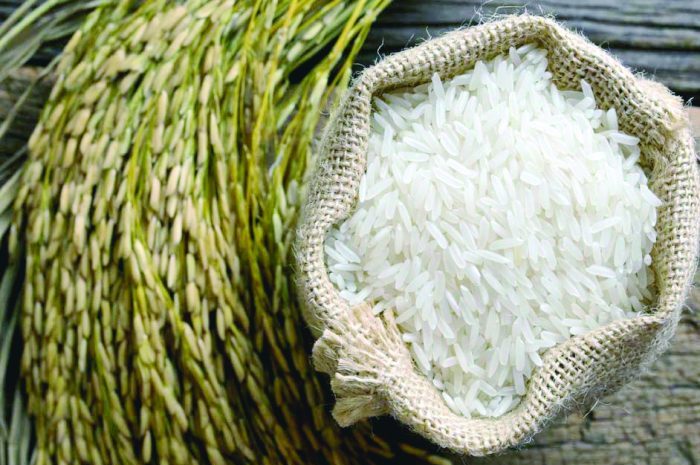Prediabetes is a condition where blood sugar levels are higher than normal, but not yet high enough to be classified as type 2 diabetes. This state serves as a crucial warning sign, indicating that lifestyle changes are necessary to prevent the progression to diabetes. Diet plays a pivotal role in managing prediabetes, and understanding which foods to avoid can significantly impact one’s health outcomes. This essay will explore the dietary adjustments needed for those diagnosed with prediabetes, emphasizing foods to avoid and the rationale behind these recommendations.
Understanding Prediabetes
Prediabetes is often diagnosed through tests such as the fasting plasma glucose test (FPG), the oral glucose tolerance test (OGTT), or the hemoglobin A1c test. According to the American Diabetes Association (ADA), an FPG result of 100-125 mg/dL, an OGTT result of 140-199 mg/dL, or an A1c level of 5.7%-6.4% are indicative of prediabetes.
The primary concern with prediabetes is its potential to develop into type 2 diabetes, a chronic condition associated with various complications, including cardiovascular disease, neuropathy, retinopathy, and nephropathy. Therefore, managing prediabetes effectively is crucial to mitigate these risks. Diet modification is one of the most effective strategies in this regard.
The Role of Diet in Prediabetes Management
Diet influences blood glucose levels directly. Certain foods can cause rapid spikes in blood sugar, while others have a more gradual impact. For individuals with prediabetes, controlling blood sugar levels is paramount to prevent progression to diabetes. This involves focusing on foods with a low glycemic index (GI), reducing intake of refined sugars and unhealthy fats, and ensuring a balanced intake of nutrients.
Foods to Avoid
- Sugary BeveragesSugary drinks, including soda, sweetened fruit juices, energy drinks, and sweetened teas, are among the top foods to avoid for those with prediabetes. These beverages are high in fructose and glucose, which can lead to rapid spikes in blood sugar levels. Unlike whole fruits, which contain fiber to slow down sugar absorption, sugary drinks provide a concentrated dose of sugar without any nutritional benefits.
Research has shown that regular consumption of sugary drinks is linked to an increased risk of developing type 2 diabetes. One study found that individuals who consumed one or more sugary drinks per day had a 26% higher risk of developing type 2 diabetes compared to those who rarely consumed such beverages.
- Refined CarbohydratesRefined carbohydrates, such as white bread, white rice, pastries, and most breakfast cereals, have a high glycemic index. This means they are quickly broken down into glucose, causing a rapid increase in blood sugar levels.
These foods often lack fiber, which is essential for slowing down glucose absorption and stabilizing blood sugar levels. A diet high in refined carbohydrates can lead to insulin resistance, a hallmark of prediabetes and type 2 diabetes.
Opting for whole grains, such as brown rice, whole wheat bread, quinoa, and oats, can help manage blood sugar levels more effectively. Whole grains are rich in fiber, vitamins, and minerals, making them a healthier choice for those with prediabetes.
- Processed FoodsProcessed foods, including packaged snacks, ready-to-eat meals, and processed meats, often contain high levels of unhealthy fats, sodium, and sugars. These ingredients can contribute to weight gain, insulin resistance, and increased blood sugar levels.
Many processed foods are also low in nutritional value, making them a poor choice for a balanced diet. Avoiding these foods and instead focusing on whole, unprocessed foods can help improve overall health and manage prediabetes more effectively.
- High-Sugar FoodsFoods high in added sugars, such as candies, baked goods, ice cream, and sugary breakfast cereals, should be avoided. These foods can cause significant spikes in blood sugar levels and contribute to weight gain and insulin resistance.
The ADA recommends limiting added sugars to no more than 10% of total daily caloric intake. This equates to about 50 grams of added sugar per day for a 2,000-calorie diet. However, for those with prediabetes, aiming for even lower intake levels can be beneficial.
- Trans FatsTrans fats, found in many fried foods, baked goods, and processed snacks, are particularly harmful to those with prediabetes. These fats can increase insulin resistance and inflammation, both of which are risk factors for the development of type 2 diabetes.
Trans fats are often listed on ingredient labels as partially hydrogenated oils. Avoiding foods containing these oils is crucial for managing prediabetes and overall cardiovascular health.
- High-Fat Dairy ProductsFull-fat dairy products, such as whole milk, cream, and high-fat cheeses, contain saturated fats that can contribute to insulin resistance and weight gain. Opting for low-fat or fat-free versions of these products can help reduce saturated fat intake and manage blood sugar levels more effectively.
Dairy products can still be a part of a healthy diet for those with prediabetes, but it is essential to choose options that are lower in fat and added sugars.
- High-Glycemic FruitsWhile fruits are generally healthy and provide essential vitamins, minerals, and fiber, some fruits have a higher glycemic index and can impact blood sugar levels more significantly. Fruits such as watermelon, pineapple, and overripe bananas have higher GI values.
Instead, choosing fruits with lower glycemic indexes, such as berries, apples, pears, and citrus fruits, can help manage blood sugar levels. Pairing fruits with a source of protein or healthy fat, such as nuts or yogurt, can also help slow down sugar absorption.
- AlcoholAlcoholic beverages can affect blood sugar levels in various ways, depending on the type and amount consumed. Beer, sweet wines, and cocktails with sugary mixers can cause spikes in blood sugar levels. Additionally, excessive alcohol consumption can lead to weight gain and liver problems, which are risk factors for diabetes.
For those with prediabetes, it is advisable to limit alcohol intake. If consumed, it should be done in moderation, and choosing options with lower sugar content, such as dry wine or spirits mixed with soda water, can help minimize the impact on blood sugar levels.
- Fried FoodsFried foods, such as French fries, fried chicken, and doughnuts, are typically high in unhealthy fats and calories. These foods can contribute to weight gain, insulin resistance, and increased blood sugar levels.
Baking, grilling, or steaming foods instead of frying can help reduce fat intake and improve overall health. Choosing healthier cooking methods is an essential step in managing prediabetes.
- High-Calorie, Low-Nutrient FoodsFoods that are high in calories but low in essential nutrients, often referred to as “empty calories,” can lead to weight gain and poor blood sugar control. Examples include chips, sugary snacks, and fast food.
Focusing on nutrient-dense foods, such as vegetables, lean proteins, whole grains, and healthy fats, can provide the necessary nutrients without excessive calories. This approach supports weight management and blood sugar control.
Healthy Alternatives
While avoiding certain foods is crucial, it is equally important to focus on what to include in the diet. A balanced diet that includes a variety of nutrient-dense foods can help manage prediabetes effectively.
- Non-Starchy VegetablesVegetables such as broccoli, spinach, peppers, and tomatoes are low in carbohydrates and calories, making them ideal for managing blood sugar levels. They are also rich in vitamins, minerals, and fiber, which support overall health.
Including a variety of colorful vegetables in each meal can help ensure a wide range of nutrients and help manage blood sugar levels.
- Whole GrainsWhole grains, such as quinoa, barley, oats, and brown rice, are rich in fiber, which helps slow down the absorption of glucose and stabilize blood sugar levels. These grains also provide essential vitamins and minerals.
Replacing refined grains with whole grains is a simple yet effective way to improve diet quality and manage prediabetes.
- Lean ProteinsProtein is essential for maintaining muscle mass and supporting overall health. Lean protein sources, such as chicken, turkey, fish, beans, and legumes, can help manage blood sugar levels without adding excessive fat.
Including a source of protein in each meal can help promote satiety and stabilize blood sugar levels.
- Healthy FatsHealthy fats, such as those found in avocados, nuts, seeds, and olive oil, can help improve heart health and support blood sugar management. These fats provide essential fatty acids and can help reduce inflammation.
Replacing saturated and trans fats with healthy fats is crucial for those with prediabetes.
- Low-Glycemic FruitsFruits with a low glycemic index, such as berries, apples, and pears, provide essential vitamins, minerals, and fiber without causing significant spikes in blood sugar levels. These fruits can be enjoyed as part of a balanced diet.
Pairing fruits with a source of protein or healthy fat can further help manage blood sugar levels.
- LegumesLegumes, such as beans, lentils, and chickpeas, are rich in fiber, protein, and essential nutrients. They have a low glycemic index and can help stabilize blood sugar levels.
Including legumes in meals can provide a healthy source of protein and carbohydrates.
- Nuts and SeedsNuts and seeds are rich in healthy fats, protein, and fiber. They can help promote satiety and stabilize blood sugar levels. However, it is essential to consume them in moderation due to their high-calorie content.
Incorporating a small portion of nuts or seeds into meals or snacks can provide numerous health benefits.
- Fermented FoodsFermented foods, such as yogurt, kefir, sauerkraut, and kimchi, contain probiotics that support gut health. A healthy gut microbiome can play a role in managing blood sugar levels and reducing inflammation.
Including fermented foods in the diet can support overall health and blood sugar management.
Conclusion
Managing prediabetes through diet requires a focus on avoiding foods that cause rapid spikes in blood sugar levels and contribute to insulin resistance. Sugary beverages, refined carbohydrates, processed foods, high-sugar foods, trans fats, high-fat dairy products, high-glycemic fruits, alcohol, fried foods, and high-calorie, low-nutrient foods should be limited or avoided.
Instead, emphasizing nutrient-dense foods such as non-starchy vegetables, whole grains, lean proteins, healthy fats, low-glycemic fruits, legumes, nuts, seeds, and fermented foods can help manage blood sugar levels effectively. Making these dietary changes, along with regular physical activity and weight management, can significantly reduce the risk of progressing from prediabetes to type 2 diabetes.
Prediabetes is a critical warning sign that should not be ignored. By making informed dietary choices and adopting a healthier lifestyle, individuals can take proactive steps to improve their health and prevent the onset of diabetes.
Related topics:
Can not eating all day cause low blood sugar?

























